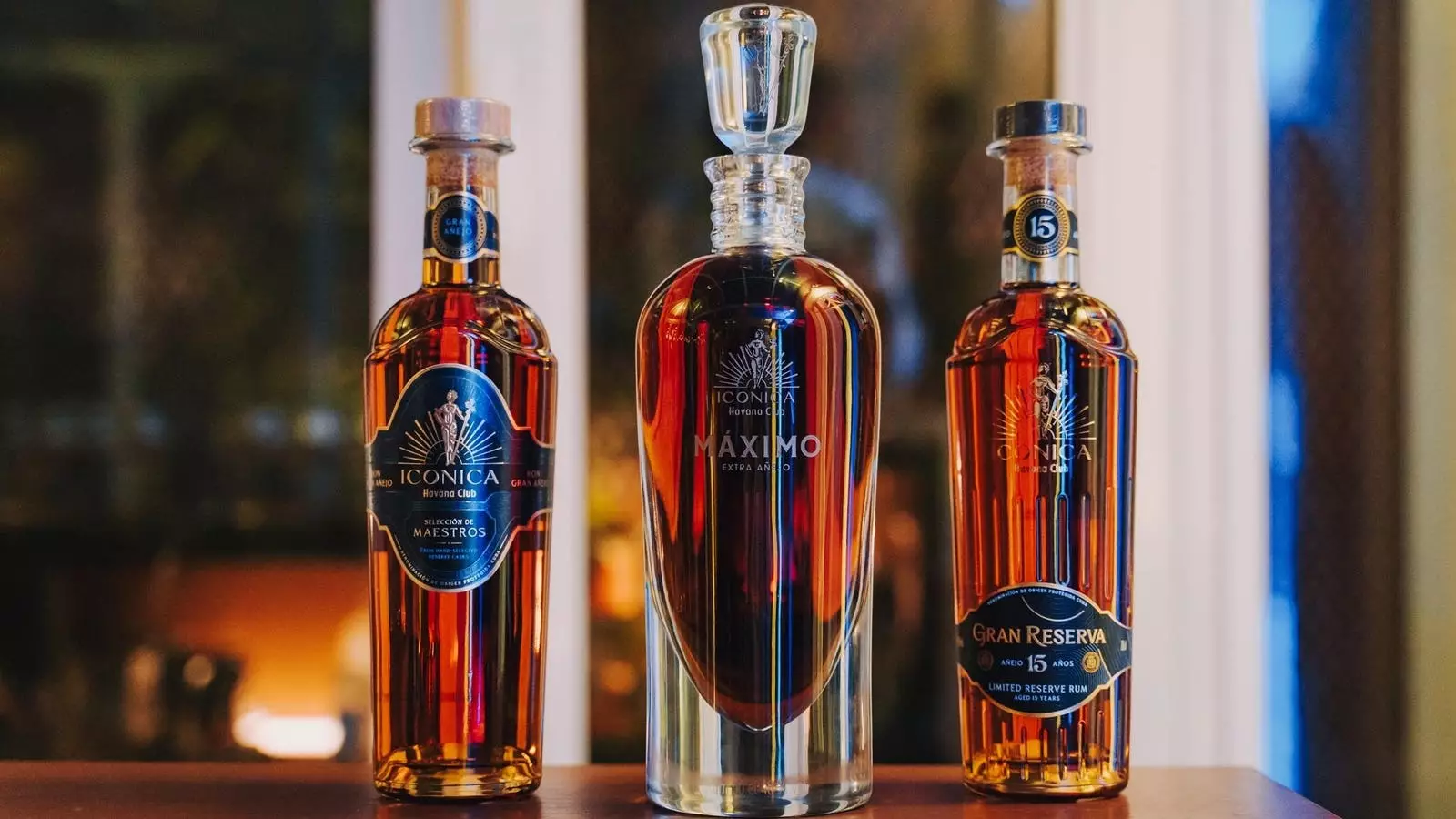In an increasingly competitive marketplace, major beverage companies are innovating their strategies to capture consumer attention and elevate brand value. This evolution extends beyond simply introducing new products; it encompasses comprehensive revamps of existing lines, focusing on packaging and marketing tactics that resonate more deeply with targeted audiences. Recent case studies of Havana Club’s Icónica rum collection and Edrington’s Highland Park whisky illustrate the importance of branding and user experience in today’s high-end spirits landscape.
Havana Club, owned by Pernod Ricard, has long been synonymous with luxury Cuban rum. Recently, the company unveiled its Icónica collection, a meticulous reimagining of its existing luxury range. The core elements of the product, including the iconic rum that has garnered international acclaim, remain intact. However, the brand has pivoted to enhance its presentation substantially.
The new branding features a striking design overhaul, including a refined logo, elegant label aesthetics, and even the introduction of wooden stoppers, replacing the conventional screw caps. This move towards sophisticated packaging is not merely superficial; it serves to signal a commitment to quality and meticulous craftsmanship that is intrinsic to the brand’s heritage. The event launching the Icónica collection took place in the heart of Paris and was accentuated by a vintage Chevy Impala to evoke a nostalgic Cuban theme, signaling a conscious effort to blend luxury with cultural storytelling.
At the heart of this renewal lies a narrative that leverages the rich history of Havana Club and its celebrated craftsmanship. The revival of the continuous aging technique, a hallmark of the brand since the revolutionary contributions of Don Navarro, further solidifies its reputation for excellence. The new collection includes three distinguished offerings, including the Selección de Maestros and the exclusive Máximo Extra Añejo, commanding premium prices that reflect their rarity and quality. The branding now also communicates the award-winning legacy of Cuban rum-making, bringing global attention to what has been recognized as a World Intangible Heritage.
In a similar vein, Edrington’s Highland Park whisky is undertaking a dramatic transformation aimed at appealing to today’s more diverse and younger audience. Previously, the brand relied heavily on robust Viking imagery, which, while powerful, limited its appeal. The repositioning strategy is now to evoke a sense of warmth, accessibility, and inclusivity, moving away from the masculine tropes of Norse mythology to embrace the softer, more human elements of its Scottish heritage.
The targeted demographic for Highland Park now includes affluent millennials aged 25 to 35, a substantial shift in focus for the brand. Jeremy Speirs, who leads global travel retail for Highland Park, has emphasized the necessity of evolving the brand’s identity to engage modern consumers. The approach leverages outdoor and natural imagery to connect consumers with the unique qualities of Orkney, weaving a narrative that celebrates provenance, local people, and idyllic landscapes.
Scheduled for a gradual rollout beginning in early 2025, the redesigned packaging across various age-statement whiskies aims to invoke the rugged beauty of the Orkney Islands, presenting a more contemporary feel that seeks to engage a wider audience. The company is also cognizant of travel retail channels, selecting major global airports for initial distribution. The updated branding will not only redefine the visual elements of Highland Park but will also embrace the nuanced character of its offerings, driven by the distinctive heathered peat unique to the region.
Both Havana Club and Highland Park exemplify how brands are shifting towards a more unique, experience-driven marketing strategy. It’s clear that today’s consumers are not just looking for quality spirits; they are seeking a narrative, an emotional connection, and a sense of heritage in the products they choose.
Havana Club’s commitment to preserving and showcasing its rich Cuban legacy through a premium rebranding illustrates a brand’s understanding of its identity in the modern context. Similarly, Highland Park’s transition from Viking lore to a more nuanced appreciation for local culture speaks to a trend where emotional resonance matters as much as flavor profiles.
As beverage brands like Havana Club and Highland Park redefine their identities, they are not only enhancing their market positions but also shaping consumer expectations surrounding luxury products. The emphasis on thoughtful packaging and authentic storytelling represents an intentional pivot that can set a precedent for how spirits will be marketed in the future, underscoring the importance of experience, heritage, and emotional connection in contemporary branding.


Napsat komentář